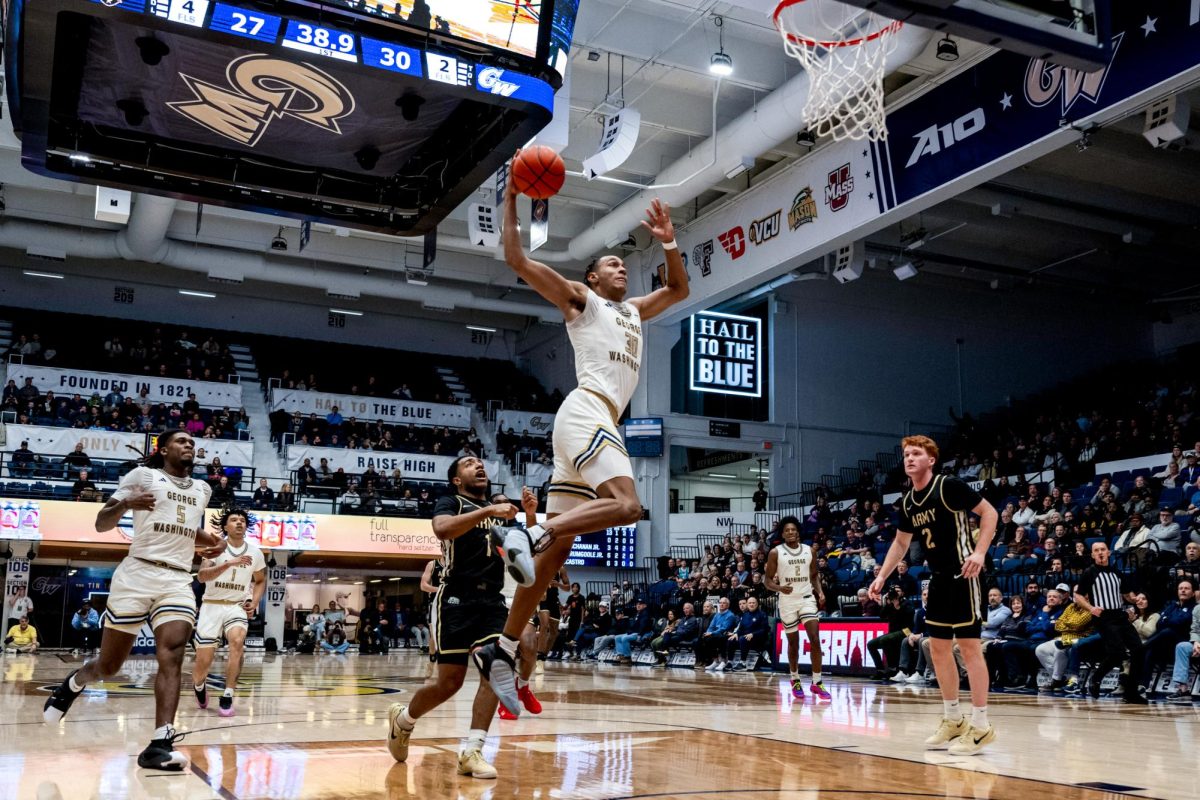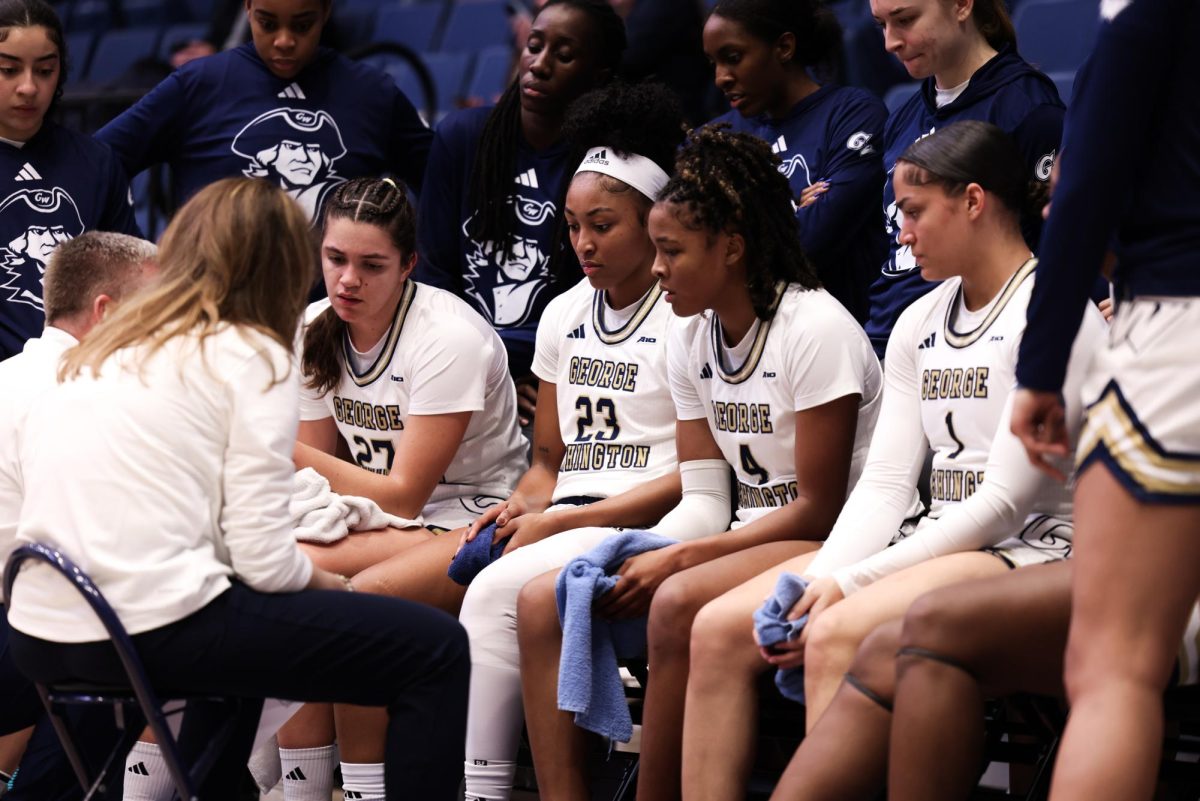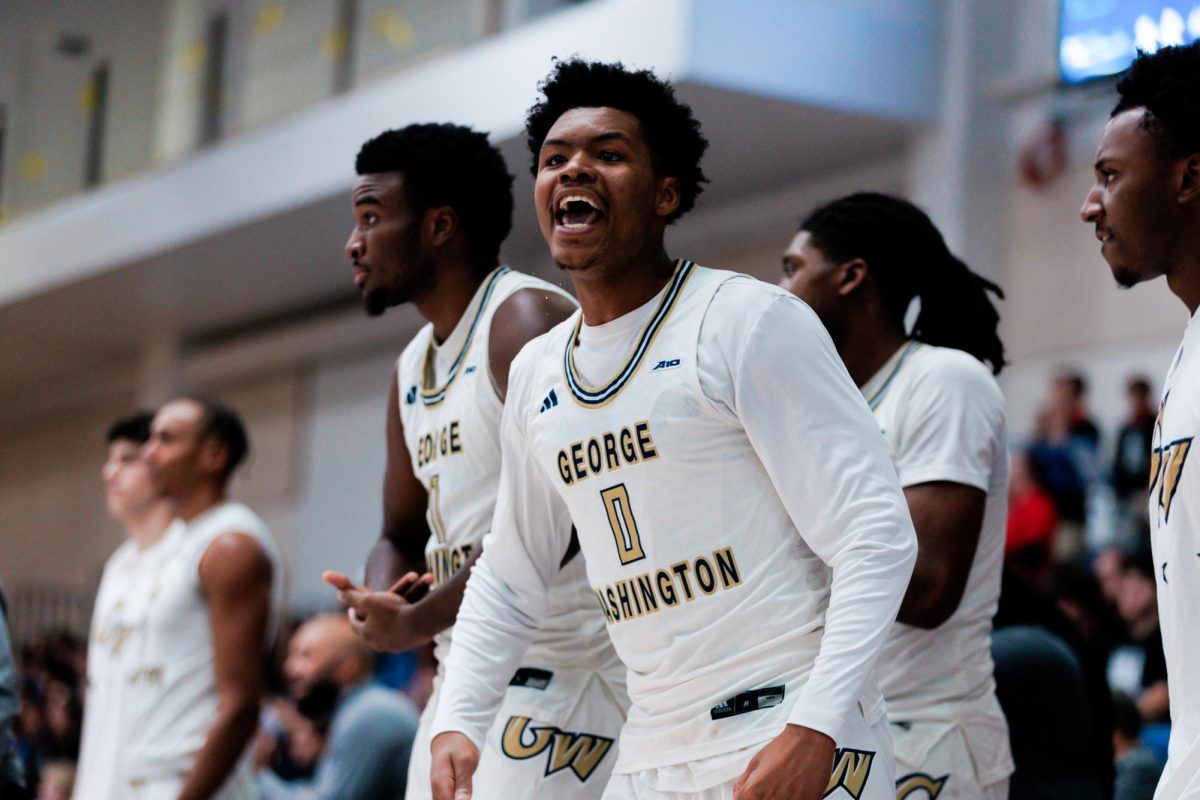Athletic director Patrick Nero said Monday he anticipates GW will remain a member of a strong Atlantic 10 conference, despite ongoing conference realignments sweeping across collegiate sports.
He pointed to the conference’s historically strong performance as an indication that the league won’t be unduly affected by the shake-up.
“We’re very focused on remaining in the A-10,” Nero said. “I think over its history, the Atlantic 10 has consistently been the best basketball conference that doesn’t sponsor FBS football. And I expect that to continue.”
Nero’s remarks follow reports this month that the Colonial Athletic Association, a 12-member NCAA Division I collegiate athletic conference, was reaching out to GW to gauge its interest in joining the league.
Head men’s basketball coach Mike Lonergan told Rivals.com that he views the Atlantic 10 as a better fit for the Colonials than the C.A.A., a sentiment echoed by Nero in his desire to remain in the A-10. Nero said Monday he has not been contacted by Stuart Rabinowitz, president of C.A.A. member Hofstra University and the C.A.A. Council of Presidents and Chancellors, reached out to GW to gauge the school’s interest in the league, despite a The New York Times report to the contrary.
“I can only comment on myself, and I have never seen any interaction from the C.A.,” Nero said. “[C.A.A. commissioner] Tom Yeager’s a good friend of mine and I haven’t spoken to Tom at all and he has not reached out to us.”
Much of the growing instability in collegiate sports has been highlighted by the departure of programs from the Big East. Pittsburgh, Syracuse and Texas Christian University all defected from the conference earlier this year, and reports surfaced Tuesday of West Virginia’s impending departure.
The moves have been largely driven by financial considerations, notably by football programs seeking to join conferences with more attractive broadcast television deals. As the Big East continues to lose football members, it will have to recruit other programs to join its ranks, prompting speculation about which schools will be offered membership. Among the schools discussed as prospective recruits for the Big East are strong A-10 members like Xavier, Richmond and Temple.
Those departures would strip the Atlantic 10 of some of its strongest members, changing its geography and competition, and potentially reducing its league profile.
Nero said he’s heard no indication of A-10 programs planning to leave, he’s also confident in the league’s ability to remain strong should it lose members, pointing to past league departures like West Virginia, Virginia Tech and Penn State as an indication of the A-10’s ability to remain afloat despite exits.
“I don’t see, right now, that the Atlantic 10 would lose multiple teams,” Nero said. “If things happen around us that cause the Atlantic 10 to lose one program or two programs, we’ll continue to build on what we have and see who else is out there. Historically, if you look at who’s left the Atlantic 10, we’ve recovered to be as strong as ever.”
Reports have also surfaced of the A-10 seeking to add members to its ranks, specifically Virginia Commonwealth University and George Mason, both 2011 NCAA tournament teams and current C.A.A. members. Nero declined to name specific schools being discussed as prospective members, but said the Atlantic 10 has been “proactive in having conversations as a group.” The addition of those two programs would increase and strengthen the Colonials’ local opponents.
Nero said he considers GW “as attractive” as any other program in the A-10, and that his main focus is to make GW stronger. It’s a focus echoed by the league at large, he said, adding that the main conversation amongst A-10 members centers around building the conference’s profile.
“We met as a group about two weeks ago in Cincinnati and really talked about continuing to do the things it’s going to take to keep the Atlantic 10 strong,” Nero said. “We’re meeting again next week [and] are very focused on making the Atlantic 10 strong so that, if someone were to leave, we could do well without them, like we always have, and also, if there are schools out there that we feel would make us stronger, we need to make ourselves more and more attractive to them.”






